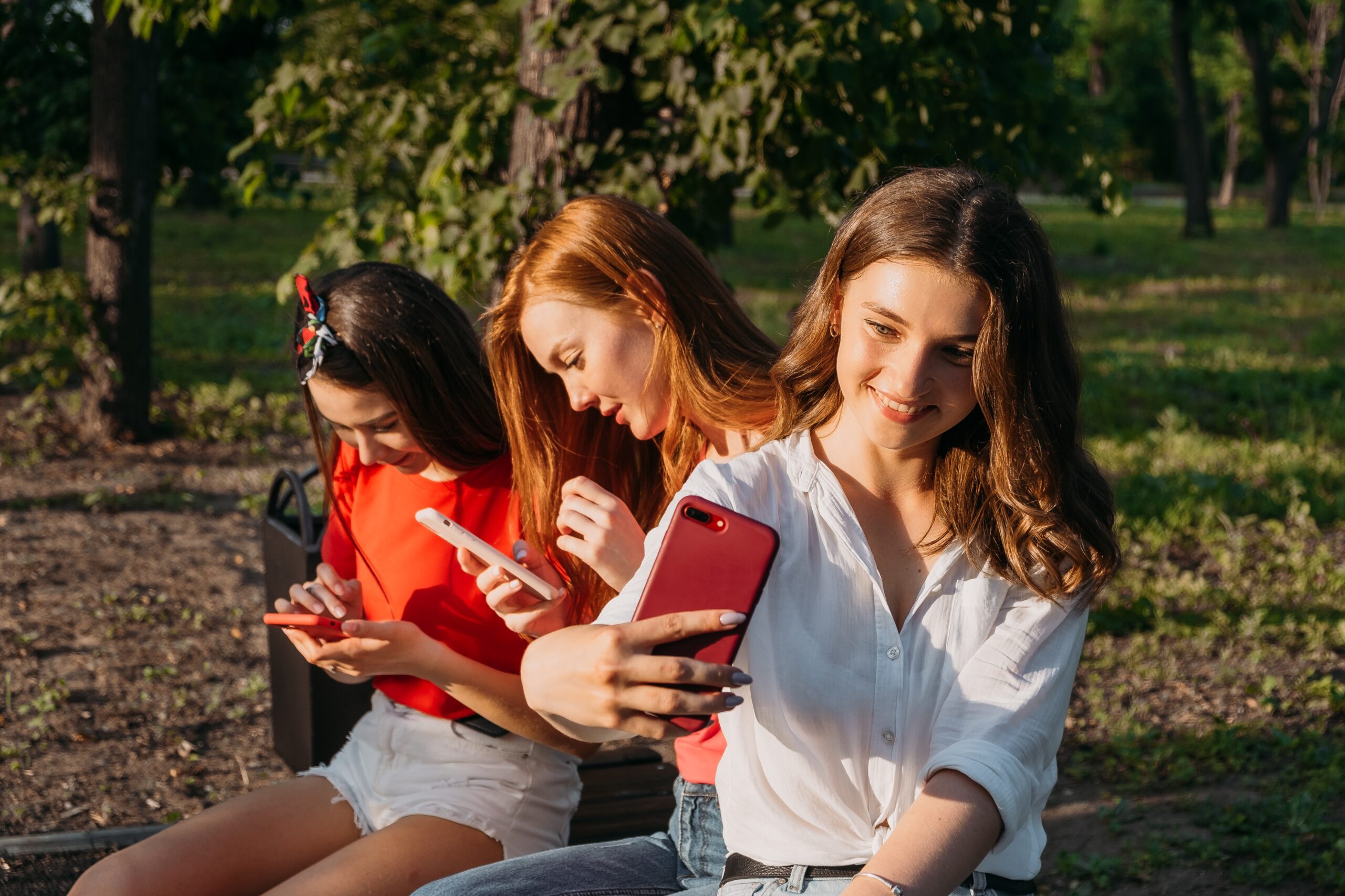From TikTok bans to Congressional hearings to school districts suing Silicon Valley tech behemoths, the potential harmful effects of social media are widely catalogued across recent news headlines.
And for good reason: mental health among youth is in a state of emergency. While teenage years have always been fraught, between the rise of round-the-clock media platforms and the COVID-19 pandemic, young people’s well-being is seeing a marked deterioration, including rising rates of depression, anxiety and suicide.
With the potential dangers taking up the most space in (inter)national conversations, is it possible that social media might also be good for kids?
Short answer: based on what we know right now, it seems like social media can be helpful for kids in certain situations, with some important caveats.
Potential Benefits of Social Media
Here are some ways in which social media can support young people’s mental health, as outlined in the report from Surgeon General Dr. Vivek Murthy:
- Social media platforms can make it easier to connect with people who have similar identities and interests – this can be particularly important for young people who are from racial, ethnic and gender identities that experience discrimination and marginalization, including those who identify with the LGBTQ+ community.
- People who have difficulty forming relationships, whether due to shyness, neurodiversity, or other circumstances can approach social interactions in a way that can feel safer and more manageable.
- Social media can offer a source of support, encouragement and validation outside of in-person friendships.
- Many social media platforms provide space for creativity and self-expression, both through opportunities to create content and in the form of online communities.
- Young people can more easily access information about a range of topics, from self-help strategies to tips for making and managing friendships, which can help them more effectively navigate the in-person world.
- Social media can be a way for people to learn more about the importance of mental health and self-care, and even provide easier pathways to accessing help when they need it.
Potential Harms of Social Media
It’s clear that social media can also have some serious negative impacts on young people’s well-being in ways that are well documented – increased rates of depression, anxiety, cyberbullying, eating disorders and body dysmorphia, all while displacing positive activities like sleeping and exercising.
Because of this, it’s clearly important to consider the potential harms and tradeoffs of social media use rather than just focusing on the apparent benefits. For example, while being on social media platforms can help people with marginalized identities find community, it can also expose people to more trauma and hate speech.
Tips for Parents and Caregivers
Wondering how to balance the benefits and risks of social media with your children? While each child has different needs, there are some guidelines that seem to be generally applicable. Here are a few tips for parents and caregivers, adapted from this excellent overview by Catherine Pearson at the New York Times:
- Pay particular attention to social media usage in children up to age 14. This is when it’s especially important to teach good, long-term habits.
- Establish firm boundaries around social media use at nighttime. For example, limit screen use after a certain time – say, 8 or 9 p.m. – and keep devices like phones outside the bedroom at night. This can help safeguard the time young people spend sleeping, which is critical to this stage of development.
- Talk about the actual impact of social media on brain development so kids understand why it’s important to be mindful of their time on these platforms.
- Along those lines, and maybe as part of the same conversation, encourage self-reflection by asking questions like “How do I feel when I’m on Instagram?” “Do I feel like I have control over when I use TikTok?” Instilling a sense of curiosity rather than judgement can help young people build the tools and habits to manage their own social media use going forward.
For More Support and Resources
If you or a loved one need support – day or night – Colorado Crisis Services is standing by 24/7/365:
- Call 1-844-493-TALK (8255),
- Text TALK to 38255, or
- Visit a 24/7 Walk-In Center. (In Denver: 4353 E. Colfax Avenue).
For support outside of Colorado, call 988 to be connected to local support based on your area code.
Youth in Colorado can access up to six free virtual counseling sessions through the iMatter program. Learn more at imattercolorado.org.
For adults in Colorado, WellPower’s TherapyDirect program provides full, virtual sessions with a professional counselor in minutes – no appointments or insurance needed.


